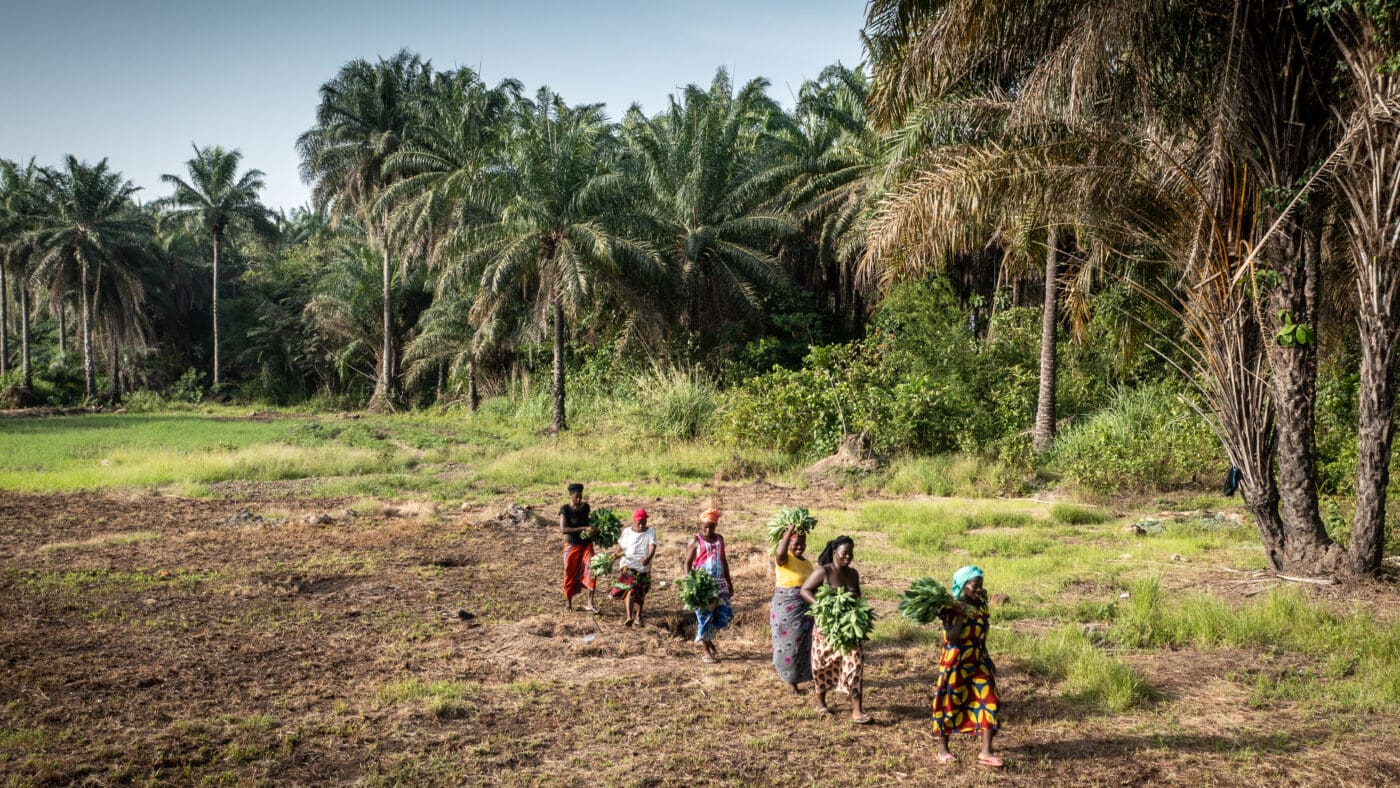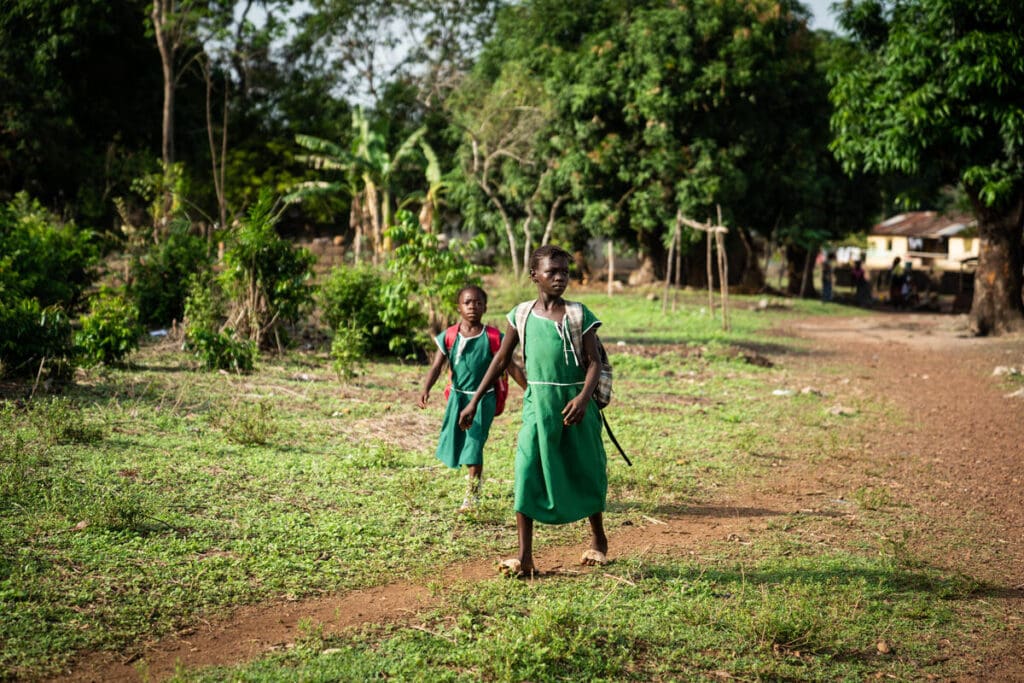
Sierra Leone
Sierra Leone is a currently peaceful country, but ongoing climate shocks and disease outbreaks pose a threat to food security.
of people are food insecure
of children have chronic malnutrition
of people live below the poverty line
A Slow Recovery from War
The country had been recovering from an 11-year war, which destroyed infrastructure and basic social services. Since then, Sierra Leone has made significant progress towards peace-building.
It was hit by an Ebola outbreak in 2014 which claimed 4,000 lives. Then the COVID-19 pandemic devastated Sierra Leone’s economy, slowing growth and the rate of poverty reduction.

WFP’s WOrk in Sierra Leone
Despite the challenges, here’s how we’re fighting hunger and building sustainability.

WFP assists the most food-insecure populations. Cash transfers empower people to make their own choices of food, including fresh vegetables and fruit, while boosting the local economy.


WFP provides daily hot meals to 216,000 pupils in the most food-insecure areas. We are scaling up home-grown school feeding with more children being served fresh vegetables each day, and the farmers have a reliable market for their crops.


WFP assists over 9,000 smallholder farmers to cultivate, process and market rice and nutritious vegetables. The farmers are also trained in climate-smart agricultural methods, post-harvest crop management, group marketing and how to successfully run village savings and loans schemes.

You Can Help Save Lives
When you donate, you help us deliver critical food relief to the most vulnerable people in Sierra Leone and other countries around the world. You can make difference in someone’s life – send food today.